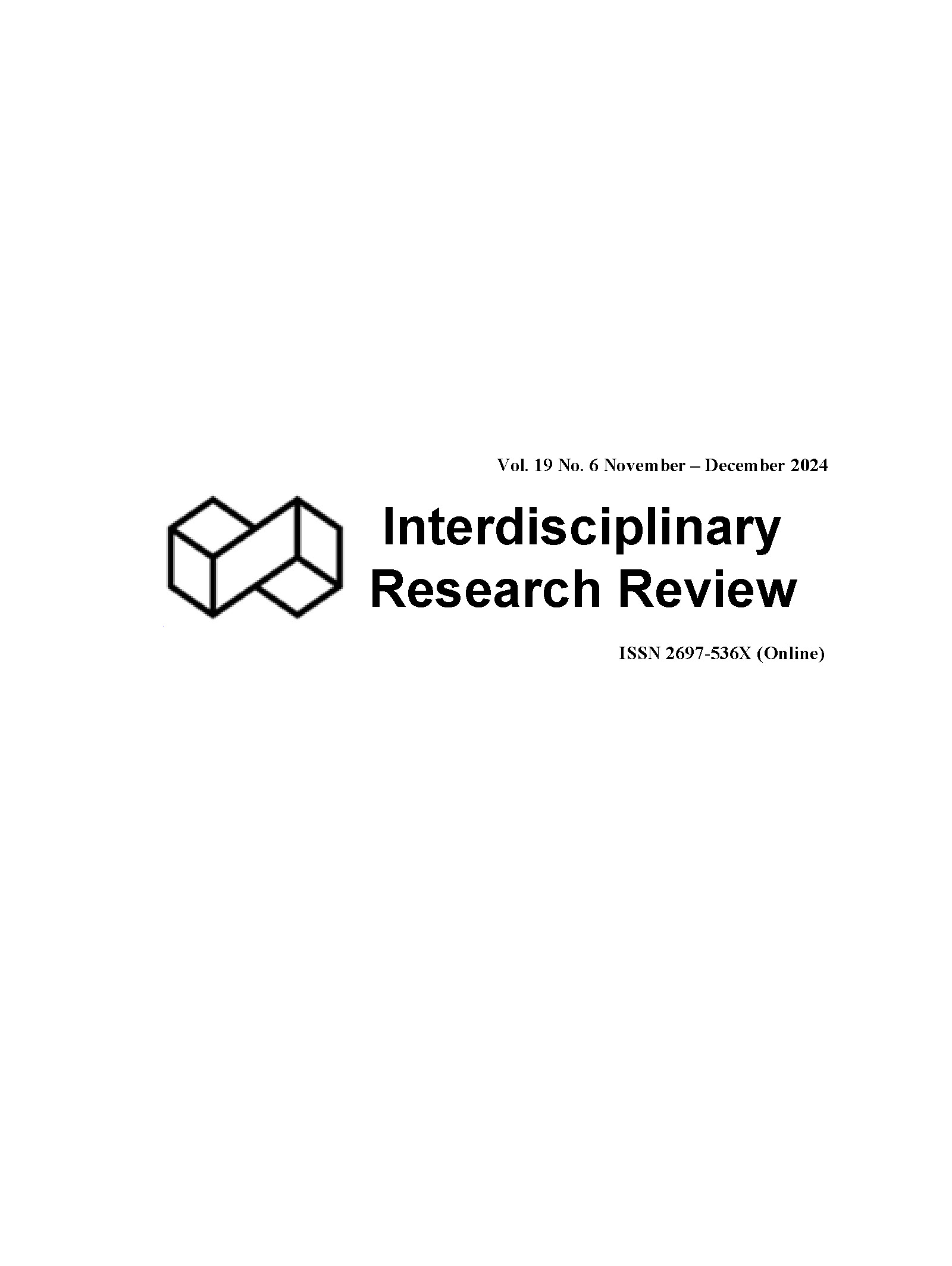Phronetic Leadership Contextualized in Higher Education: The Case of Ifugao State University, Philippines Phronetic Leadership in a Government University of the Philippines
Main Article Content
Abstract
Wise or phronetic leadership which is embedded in the socialization, externalization, combination, and internalization model (SECI), contributed much to the achievement of organizational goals. The case study contextualized phronetic leadership at Ifugao State University, Philippines. It aimed at creating a phronetic leadership framework for Administrative Council (ADCO) officials, student leaders, and instruction. The main participants were the ADCO members of Ifugao State University (IFSU) who traveled from Ifugao, Philippines to Central Luzon State University (CLSU). The ADCO members of CLSU were the counterparts of the ADCO officials of IFSU for the creation of a university-wide phronetic leadership framework. For the students’ phronetic leadership framework, the participants were the student leaders, advisers, and the director of the Department of Student Services and Development (DSSD). Focused group discussions and interviews were undertaken to collect data. The data gathered were analyzed, explained, translated, and processed. As a result, phronetic leadership frameworks for administrative council members, student leaders, and instruction were developed. Phronetic leadership is very highly applicable in higher educational institutions.
Article Details

This work is licensed under a Creative Commons Attribution-NonCommercial-NoDerivatives 4.0 International License.
References
Li, M., Yang, F., and Akhtar, M.W., Responsible leadership effect on career success: The role of work engagement and self-enhancement motives in the education sector. Front.Psychol. 13, 1-9. Doi: 10.3389/fpsyg.2022.888386, (2008).
Hallinger, P. and Heck, R., Understanding the contribution of leadership to school improvement: M. Wallace & L. Poulson (Eds) Learning to read critically in educational leadership and management (London, Sage), (2003).
Alonderiene, R., and Majauskaite, M., Leadership style and job satisfaction in higher education institutions. Int. J. Educ. Manag. 30, 140-164. Doi: 10.1108/IJEM-08-2014-0106, (2016).
Ramalu, S. S., and Darus, A. B. H., Transformational leadership style and knowledge management among university administrators in Malaysia: Examining the moderating effect of organizational structure, (2013).
Gonzales, N.A.P., Indigenous peoples’ phronetic leadership: A trailblazing case study of Bacut man-made lake for agri-eco-tourism, Apayao, Philippines. (2024). Academic Journal of Interdisciplinary Studies, 13(2), 444. https://doi.org/10.36941/ajis-2024-0060, (2024).
Walker, G., "Higher education leadership and management as “practical reasonableness”: A phronetic approach to higher education research", theory and method in higher education research (Theory and Method in Higher Education Research, Vol. 5), Emerald Publishing Limited, Leeds, pp. 73-90, (2019).
Kezar, Adrianna J., and Elizabeth M. Holcombe., Shared leadership in higher education: Important lessons from research and practice. Washington, DC: American Council on Education, (2017).
Ruben, B., Mahon, G. and Shapiro, K., "Academic leader selection, development, evaluation, and recognition: Four critical higher education challenges",
Limited, Leeds, pp. 115- 138. https://doi.org/10.1108/S1479- 362820220000015007, (2022).
Drew, G., Issues and challenges in higher education leadership: Engaging for change. Aust. Educ. Res. 37, 57–76. https://doi.org/10.1007/BF03216930, (2010).
Tirri, K., Eisenschmidt, E., Poom-Valickis, K., and Kuusisto, E., Current challenges in school leadership in Estonia and Finland: A multiple case study among exemplary principals”, Education Research International, Article ID 8855927. https://doi.org/10.1155/2021/8855927, (2021).
Darnell, C., Gulliford, L., Kristjánsson, K., and Paris, P., Phronesis and the knowledge- action gap in moral psychology and moral education: A new synthesis? Human Development, 62(3), 101– 129. https://doi.org/10.1159/000496136, (2019).
Chen, J., Liu, Y., Dai, J., and Wang, C., Development and status of moral education research: Visual analysis based on knowledge graph. Frontiers in Psychology, 13, 1079955. https://doi.org/10.3389/fpsyg.2022.1079955, (2023).
Nonaka, I., and Takeuchi, H., The big idea: The wise leader. Harvard Business Review, 89 (5), 58- 67. https://hbr.org/2011/05/the-big-idea-the-wise-leader, (2011).
Nazaruddin,I., Sofyani, H., Putri, C., Fatmaningrum, E., & Wahyuni, F., Ethical leadership and performance appraisal satisfaction: The mediating role of trust. https://www.taylorfrancis.com/chapters/edit/10.1201/9781003131465- 135/ethical-leadership-performance-appraisal-satisfaction-mediating-role-trust- nazaruddin-sofyani-putri-fatmaningrum-wahyuni, (2020).
Madlock, P. E., The link between leadership style, communicator competence, and employee satisfaction. Journal of Business Communication, Retrieved from https://www.researchgate.net/profile/Paul_Madlock/publication/238335958_The_ Link_Between_Leadership_Style_Communicator_Competence_and_Employee_S atisfaction/links/02e7e534 c408e49bf6000000.pdf, (2008).
Nguni, S., Sleegers, P., and Denessen, E., Transformational and transactional leadership effects on teachers' job satisfaction, organizational commitment, and organizational citizenship behavior in primary schools: The Tanzanian case. School effectiveness and school improvement, 17(2), 145-177, (2006).
Valcour, M., Anyone Can Learn to Be a Better Leader. Harvard Business Review. https://hbr.org/2020/11/anyone-can-learn-to-be-a-better-leader, (2020).
Luthra, A., Effective Leadership is all about Communicating Effectively: Connecting Leadership and Communication. 5.3. 43-48. https://www.researchgate.net/publication/307598681_Effective_Leadership_is_all_about_Communicating_Effectively_Connecting_Leadership_and_Communication, (2015).
Nonaka, I., A Dynamic Theory of Organizational Knowledge Creation. chrome extension://efaidnbmnnnibpcajpcglclefindmkaj/https://josephmahoney.web.illinois.edu/BA504_Fall%202008/Uploaded%20in%20Nov%202007/Nonaka%20(1994).pdf, (1994).
Smith, E., The role of tacit and explicit knowledge in the workplace. Journal of Knowledge Management Volume 5 . Number 4. pp. 311-321. chrome-extension://efaidnbmnnnibpcajpcglclefindmkaj/https://www.uky.edu/~gmswan3/575/KM_roles.pdf, (2001).
Nonaka, I. and Konno, N., The concept of “Ba”: Building a foundation for knowledge creation. California Management Review, Vol. 40, Number 3. chrome- extension://efaidnbmnnnibpcajpcglclefindmkaj/https://home.business.utah.edu/actme/7410/Nona ka%201998.pdf, (1998).
Nonaka, I., Cultivating Leaders with Practical Wisdom: Scrum and Ba Building [PowerPoint slides]. SlideShare. https://www.slideshare.net/hiranabe/agilejapan2010- keynote-by-ikujiro-nonaka-phronetic-leadership?from_action=save, (2010).
Barr, G. A., The application of phronesis to teaching and quality management: a case
study in further education (Doctoral dissertation, University of Hull). https://hydra.hull.ac.uk/resources/hull:4451, (2011).
Brackett, H., and McKnight, E. D., 4. Healing the ethical cleft: Phronesis and university ethical leadership. Philosophy and Theory in Higher Education, 2(1), 69– 89. https://doi.org/10.3726/ptihe.2020.01.04, (2020).
Brundrett, M. and Lungka, P., The development of teachers’ knowledge and behaviour in promoting self-discipline: a study of early years teachers in Thailand, Education 3-13, 47:4, 462-474, DOI: 10.1080/03004279.2018.1498996, (2019).
Kairit, M., Meta-analysis of Nonaka & Takeuchi’s knowledge management model in the context of lifelong learning. Journal of Knowledge Management Practice, Vol. 13, No. 4, (December 2012). http://www.tlainc.com/articl319.htm
Walker, G., "Higher education leadership and management as “practical reasonableness”: A phronetic approach to higher education research", theory and method in higher education research (Theory and Method in Higher Education Research, Vol. 5), Emerald Publishing Limited, Leeds, pp. 73-90, (2019).


